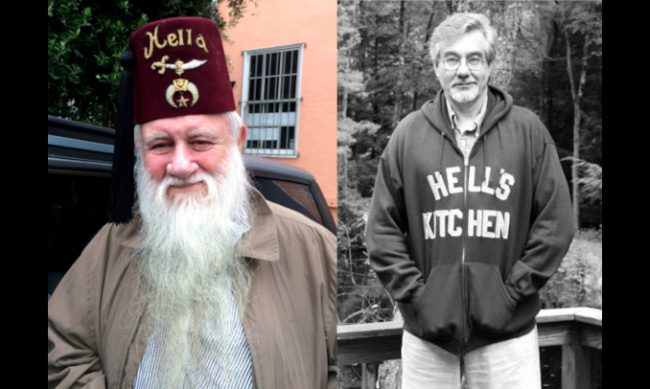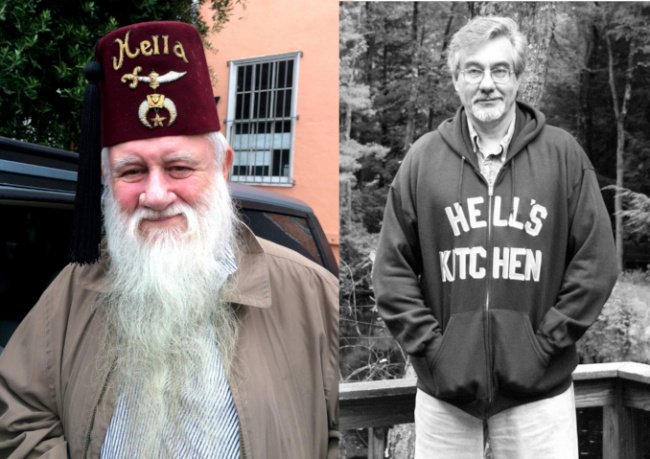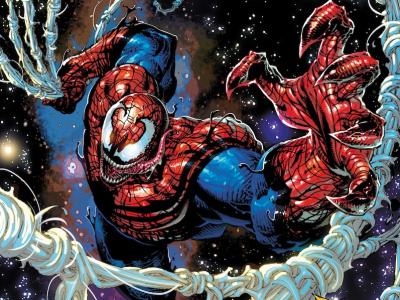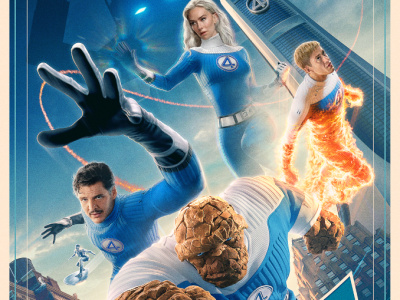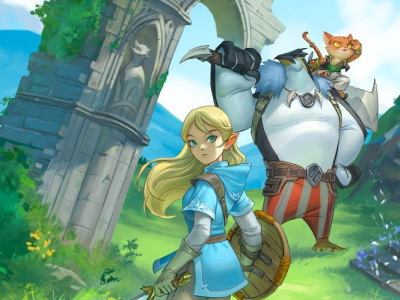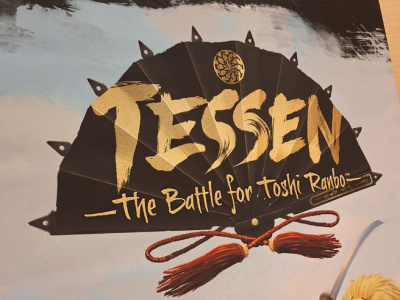To watch a video of this interview, see "ICv2 Video Interview: Ron Turner and Denis Kitchen, Part 3."
This interview and article are part of ICv2's Comics Direct Market 50th Anniversary celebration; for more, see "Comics Direct Market 50th Anniversary."
Ron, I don't know that a lot of people recognize this as a role you had, but I remember Last Gasp as the source for the first English language manga we ever sold. Can you talk a little bit about how you got involved in selling manga in the U.S. and how that related to the kinds of stores that were available to sell it in? Gen of Hiroshima is what I'm thinking of.
Turner: There was a few people that were interested in that, and I tried to get the rights to it and failed at first. It went to some other publishers, and I had to wait them out before they screwed it up and didn’t get the rights to it. I felt somehow personally involved with it.
My son went to Japan for his junior year abroad and he's fluent in Japanese now and has worked with the Barefoot Gen people. We've gone from—I don't have a number handy, but it's getting to be pretty large in terms of, there's 10 books that Nakazawa did. Each one's about 250 pages. That's an amazing story, but the storyline of the bombing of Hiroshima really is caught best in the first two volumes and in total the first four before his characters take off on a classic manga storyline. The first four volumes are about a thousand pages of what was really going on in Japan before, during, and after the annihilation of Nagasaki and Hiroshima.
Were manga selling in head shops or by that time was it mostly going to comic distributors and comic stores?
Turner: Early on, the first big alternative quality paperback book distributor in the country was Book People in Berkeley. They took our Slow Death Funnies right off the bat and later on It Ain’t Me Babe. They were always stocking these things, but they were still extremely hard sell into a bookstore because they were stapled, and they frowned upon these things as not being quite books. There was a big attitude shift about what they carried and what they didn't or what they didn’t want to. Also, even though you could read about a good sexual romp in a quality trade paperback, if we had to show you pictures about it, it suddenly became more pornographic than they wanted to acknowledge. There was always that barrier.
They went out and got us into virtually all the alternative bookstores that were popping up around the country. That became another aspect of where we could sell things.
That was more book channel, bookstores, than comic stores for the first manga.
Turner: Right.
Interesting.
Turner: Again, record shops were about as high on the list as head shops at a certain point, too. It became a place where people went for the culture and if you had your comics there, fine. We used to sell like we'd have a really good day if we had like a 30, 40 grand order from the Tower Records chain, for instance. They were so confused as to what they were doing, they would often reorder because they couldn't find what they had ordered.
I want to bring it up to current and get your reflections on the last few decades, the growth of this comic store market, and what you think that means for the types of comics that get published and the overall market.
Denis, maybe you could share your thoughts. I know you did a couple of things with Marvel. You were actually directly involved with that distribution network at one point with Marvel.
Kitchen: True. Well, 1973, Ron will recall, we call the crash of '73 where it was a combination of the Supreme Court ruling and also what we interpreted as a glut of undergrounds because they were sold on a non‑returnable basis. A lot of the shops didn't order maybe in the wisest way. They would say, "Send us a dozen of each," instead of saying, "Send us 25 Freak Brothers and five of ABC." When their racks would get clogged, then of course they stopped ordering. In '73, both of those came to a head and Stan Lee had been trying to hire me for a year or two and I had been joking with him about it but putting them off. By '73, when I saw the handwriting on the wall, maybe we're not going to survive this crisis, I said, "All right, let's talk."
The idea was to create a magazine that would still be essentially the same talent and material, but it would be distributed through Marvel's distribution system, which was Curtis at the time. Suddenly, we went from printing 10,000 or 20,000 of a standard underground first printing, Marvel did 200,000. The page rate was also much higher and guaranteed. That was my first experiment dealing with them.
Ultimately, it only lasted five issues because… I don't think it had anything to do with the magazine per se, but it was more the politics of, I had negotiated with Stan, who had just inherited the publisher mantle from Martin Goodman, who retired. And Stan was, honestly, a little bit naive because he broke their standard model and he agreed to return the art. He agreed, grudgingly, to let us keep our copyrights. As you can imagine, the more veteran contributors in the bullpen got wind of this, and basically, they were like, "Why are you giving these hippies this special deal? We're not getting our art back. We don't own our copyrights." Of course, that's because they were doing house characters.
He had this rebellion. He had opened the Pandora's box, didn't know how to shut it, and the easiest thing was to just kill the magazine. But it was a little heady to be able to realize, "OK, we just did something, and suddenly 200,000 copies are in newsstands across America."
And comic stores, because that was post‑Seuling.
Kitchen: Yes, it was both.
What about the last few decades and what's happened? There are not a lot of head shops out there. I'm in a college town, there's a couple here, I guess, but I don't think any of them carry comics. Comic stores are really the place to buy comics. How has that evolved and changed what you see is happening in the market?
Kitchen: Well, I can't help but comment that for quite a while, and of course you were involved in this in the great distribution wars, I liked it best when there were six or eight or more mostly regional comics distributors like Capital City and the others.
When Marvel made its move to acquire its own distributor, it started this whole change in the market and you ended up, of course, having to sell what was left of Capital City to Diamond. Suddenly, we had a single distributor. Service was the worst. It was to me the darkest days of comics distribution.
Now, I don't really recognize the market. I'm grateful that I'm effectively retired from publishing. I don't have to deal with it. I think those who didn't experience the golden age will never know really how efficiently comics were getting out there.
Every time we lost one distributor, the lost sales weren't picked up by another distributor. It just continued to diminish. I think largely because we lost that regional edge when Capital alone had how many warehouses spread out as did Diamond and some of the others. It was a very, to me, efficient system.
Ron, what are your reflections on the change in the business? You did continue to publish over all these recent decades. What are your thoughts on how it's changed?
Turner: Well, I kind of expanded. Basically, it finally dawned on me that I had two companies, so I tried to run them a bit separate. First, the publishing. That was mostly what I wanted to publish and be done.
And distribution, that required a lot more employees. I began to carry more book titles and began to cherry‑pick publishers. They were pretty against us for God knows what reasons, even selling to us. We could never quite figure it out. But some point, we had over 600 places we were buying our stock from plus our own stuff.
In doing so, I started doing children's book fairs in San Francisco of all things, mainly because my kids were going through preschool, private preschool. Of course, every place we went always said make more money for us please, so we'd have book fairs. I must have run at least 50 different book fairs around the San Francisco area over the years.
Scholastic would come in and say, "Let us do your book fair for you. Here, you get 10 percent of what we sell." Then everyone would say, "Oh, that's wonderful." I would give them a store discount of 40 percent. They'd say, "My God, that's great. Why can't these other people do it?" I said, "I don't know. They're greedy, I guess. I don't know."
It was a lot of back breaking, moving boxes around up and down stairs and places and distributing, getting it sold and understood. Some people didn't understand it. We had some parents who wanted Zippy the Pinhead banned. "How can you have a Zippy calendar? Terrible! These are our children!" There was that. Then we also began to sell to bookstores around the country. As the comics began to be collected into anthologies and manga and whatever, they had spines on them and they’d go into bookstores and be sold.
We began expanding even more. Then I had different people on our staff like the late Eric Gilbert from France, who had a lot of the connections over there. They began publishing, for Casterman and some other places, some of the Tintin books for America. We lost out to Little Brown on Tintin, where we offered the same amount of money, the same net earning stuff, but went to Random House. We have the same money offer on the table for this stuff, but they chose Random House because it was a "trusted brand." Look at these hippies out there, Last Gasp, who wants to deal with them?
Your evolution was more toward the book market than the comic store market.
Turner: Yes.
Then we got off onto the T‑shirt world. We did that pretty well. We also had just oddball things again, like some calendars and whatnot.
Has Diamond been carrying your stuff over the last 20, 30 years?
Turner: Yes, they have. This was a very famous thing. Denis got Steve to carry comics into the Bible Belt South. We were all very anxious about that because he got these orders, but we didn't. We were very jealous of Denis.
At the San Diego Comic‑Con, when it was in the old Convention Center, I remember one Sunday morning, Steve came into my table because I sent word that we needed to get together and I needed to talk to him about something. I remember we went over, and we stood there and we went through a Cherry comic.
I read it to him panel by panel. There's these two guys out there standing in the middle of the convention with people going by and I'm explaining to him each thing. When I got done with it, he said, "Is that all?" I says, "Yeah." He says, "Yeah, we'll take that." I was thrilled.
I think about the next day or so, it was a Sunday, we got raided by the San Diego Police Department. They were going to close us down. Thank God for Fae Desmond and other members of the early Golden Age of the San Diego Comic‑Con they came and told them, "Hey, we're running this place. We don't have a problem with this. Why are you here?"
They’d come on a Sunday morning figuring that nobody would be at the convention center on a Sunday morning. The house was packed. I remember across from us, was I think it was DC, is that who did Wonder Woman? I said, "What's the matter with that over there?" It had Wonder Woman with the halter top and short shorts on the cover.
The cops wanted to bust those guys for the pornography of Wonder Woman. This is how off the tracks they were in terms of, they had no idea what they were talking about. We managed to slip through that one.
Denis, you stopped publishing not long after Capital sold out to Diamond, but do you remember this anecdote that Ron just recounted that you were the first one to get those kinds of comics into Diamond?
Kitchen: I guess not specifically, I'm not challenging Ron's memory, but…
What do you remember about doing business with them?
Kitchen: With who in particular?
With Diamond.
Kitchen: Early on I had problems with Diamond because Steve was a pretty conservative fellow. I think at the time he was married to an even more conservative wife and they literally wouldn't—
Turner: The Jehovah Witness.
Kitchen: Yes, that's right. Diamond literally wouldn't carry a lot of our titles even without looking at them. I remember the year we came out with Harvey Kurtzman's Goodman Beaver collection and we got zero orders from Diamond after the solicitation. I said, "What gives? This is a great book." He said, "Oh, it's got beaver in the title. We can't carry that." It would get that silly.
Same with I think Rand Holmes. He did a Herald Hedd in Hitler's Cocaine was the name of the story. They said, "It's got cocaine in the title." I said, "Yeah, but it's Hitler's cocaine. It's not glorifying. It's part of the plot." They said, "Oh, we can't carry that." We had a lot of battles. Eventually, I think Steve just realized to be competitive with Capital and the other distributors out there, he had to stop being silly about it and put his own personal taste aside. But it took a while.
From either of you or both of you, any other reflections on where the comics business is now and where you see it going in the future? Denis?
Kitchen: I love comics and I wish the best for it, but I think it's a tough time now to be a publisher, probably a tough time to be a distributor too. The whole future of the print medium is being debated. I love newspapers. I see them dying. We're at a tipping point where I don't think the current model can last indefinitely. There's just way too many publishers turning out way too much product for the market to consume, especially as the prices keep escalating. I don't know how a fan who wants to buy a dozen titles a week or even a month, it's a big chunk of money these days.
Something's going to change. I think it's going to become a smaller market or what people have been saying for years is it'll be more and more digital comics, which is not a direction I like, but it's certainly a more efficient way to get comics into readers eyes. I'm not terribly optimistic right now and normally I am.
Ron, what are your thoughts on where we are and where we're going?
Turner: Denis says we're at the tipping point. I think that if we move back like 500 years, we'd be sitting around like the monks were, doing illuminated lettering, sitting in their little hovels with a feather pen and they'd be drawing. Then they'd say to each other in silence, silent words, saying like, "Did you hear about that guy Gutenberg?" "Really? He said he can move letters around? What are we going to do?" Yeah, I think it's inevitable that we are going to be a digital thing, finally.
One of the things I thought way back when, when computers were beginning to be part of our lives, part of our cell phones, part of just about everything, there's a company that came out now with a foldable phone so you can fold it back, and I thought that's the only thing that's keeping us from having a device at home being your home newspaper so that you can at least get the feel of having it by simply you turn the page by pressing a button, but you still have something that can be folded up or not, put away, and act like a newspaper. If we get that, I'll be happy. That'll be enough for me. At least I don't have to break my back picking up the paper off the stoop every morning.
And it's so much more efficient. We have to face it, it's efficient. You can't keep having people, your own little server bringing you your paper every day from a distant warehouse. That's not going to work anymore. Let's just do the whole thing. Let's just get the chip put in our brain and have everything sent to us from a satellite and be done with it.
I had to give up my distribution company five, six years ago. I had kept it going for about two years longer than it should have. I was embarrassed that I felt that my poor employees would never get another job considering they've been working for the ancient art of bookselling through distribution. There are no more jobs like that out there for them. But in fact, once the act was done, almost every one of them got a better job. They got better because they were smart, not because they went back into the book industry.
All right. That's all very cheery.
I'm somewhat more optimistic than both of you on the survival of the print medium, mainly because digital has capped out at about 30 percent of the book business. It grew fast for a number of years, and then it stopped growing and even shrank back a little bit. Comics, same thing. It grew rapidly and then shrank back a little bit. Now, the latest thing is webtoons, where you can vertically scroll on your phone. That seems to be blowing up, but then they print the collections and people buy them anyway. They've already seen them on their phone, but they buy these collections. There is still an appetite for print, and hopefully, that will outlive all of us.
Maybe that's a good point at which to end our conversation. I want to thank you both very much for helping illuminate the history of comics and comics distribution. Thanks again for participating.



